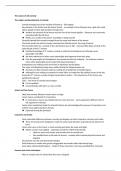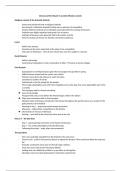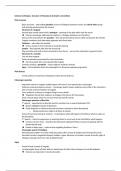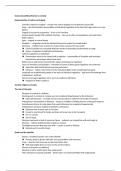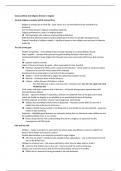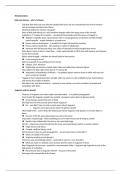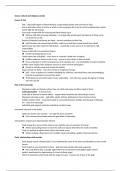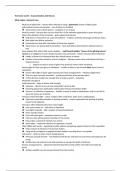OCR • Classics: Classical Civilisation
Latest uploads for Classics: Classical Civilisation at OCR. Looking for Classics: Classical Civilisation notes at OCR? We have lots of notes, study guides and revision notes available for Classics: Classical Civilisation at OCR.
-
277
-
2
-
25
Modules Classics: Classical Civilisation at OCR
Notes available for the following courses of Classics: Classical Civilisation at OCR
- A2 Unit AH3 F393 - Greek History: conflict and culture
- A2 Unit AH4 F394 - Roman History: the use and abuse of power
- A2 Unit CC7 F387 - Roman Britain: life in the outpost of the Empire
- A2 Unit CC8 F388 - Art and Architecture in the Greek World
- A2 Unit CC9 F389 - Comic Drama in the Ancient World
- A2 Unit CC10 F390 - Virgil and the world of the hero
- A2 Unit G3 F373 - Classical Greek Verse
- A2 Unit G4 F374 - Classical Greek Prose
- A2 Unit L3 F363 - Latin Verse
- A2 Unit L4 F364 - Latin Prose
- AS Unit AH1 F391- Greek History from original sources
- AS Unit AH2 F392 - Roman History from original sources
- AS Unit CC1 F381 - Archaeology: Mycenae and the classical world
- AS Unit CC2 F382 - Homer\'s Odyssey and Society
- AS Unit CC3 F383 - Roman Society and Thought
- AS Unit CC4 F384 - Greek Tragedy in its context
- AS Unit CC5 F385 - Greek Historians
- AS Unit CC6 F386 - City Life in Roman Italy
- AS Unit G1 F371 - Classical Greek Language
- AS Unit G2 F372 - Classical Greek Verse and Prose Literature
- AS Unit L1 F361 - Latin Language
- AS Unit L2 F362 - Latin Verse and Prose Literature
Popular books OCR • Classics: Classical Civilisation

Walter Burkert • ISBN 9780631156246
Virgil • ISBN 9780140449327

Virgil, Robert Fagles • ISBN 9780141996332

Homer, Homer • ISBN 9780140447941
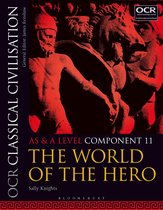
Sally Knights • ISBN 9781350015081

Robert Hancock-Jones, James Renshaw • ISBN 9781350015111
Latest notes & summaries OCR • Classics: Classical Civilisation
Notes on: - origins of comedy and how it developed during the 5th century BC - including the contributions of Aristophanes, use of actors and the chorus, use of masks, costumes and props, types of humour, comic techniques and effects, common themes of comedy, relationship between the cultural context and subject matter of the plays
Notes on: - role and significance of drama and the theatre in ancient Athenians society - including the religious context of dramatic festivals, the organisation of the city Dionysia - including the makeup and involvement of the theatre audience, structure of the theatre space, and how this developed during the 5/4th centuries BC - including the machinery associated with the theatre (crane and wheel platform) and how they contributed to the staging of Greek drama
Notes on: - plot structure , plot devices - including messenger speeches, agon, parabis, use and choice of language, literary devices & descriptive techniques - including imagery and dramatic irony, characterisation - including the role of the chorus, styles and techniques of the different playwrights
Notes on: - ancient religious concepts, beliefs & practices - including role of the gods and death & the afterlife, representation and satire of tragedy, importance of the polis (city) - including the position & role of men, women and slaves in society and political ideas & ideals
Notes on: - ancient religious concepts, beliefs and practices, the role of the gods, fate & free will, prophecy & prophets, religious rituals & acts, importance of the polis (city) - including position & role of men, women & slaves in society, political ideas & ideals, importance of family relationships, tragic heroism - including the nature of heroes & heroism, justice & revenge
Notes on Masso9lit series by Richard Jenkyns on the Aeneid that can be used as scholarship for 30 markers
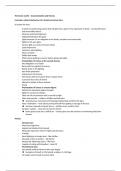
Notes on: - concepts, values and behaviour of a Greek and Roman hero, the characterisation of major and minor characters, the role of Aeneas in Rome’s imperial destiny, the portrayal of war and the portrayal of different nations - Trojans, Greeks, Carthaginians, Italians
- Package deal
- Summary
- • 7 pages's •
-
The Aeneid • By clempitrat
Notes on: - concepts, values and behaviour of a Greek and Roman hero, the characterisation of major and minor characters, the role of Aeneas in Rome’s imperial destiny, the portrayal of war and the portrayal of different nations - Trojans, Greeks, Carthaginians, Italians
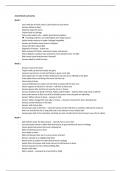
Notes on all the important events that take place within the required books for the exam, OCR board
- Package deal
- Summary
- • 5 pages's •
-
The Aeneid • By clempitrat
Notes on all the important events that take place within the required books for the exam, OCR board
Looking at the contexts seen within the Iliad, including notes on: the power of fate, the role of immortals and the relationship between immortals and mortals, family and friendship, hospitality and guest friendship (xenia), the relationships between men and women, parents and children, the part played by women in the epic and their position in society and the role of slaves
Notes on the key themes in the Iliad with examples - concept & behaviour of a hero, life in Troy & the Greek camp, portrayal of war, death & mortality, menis and reconciliation

